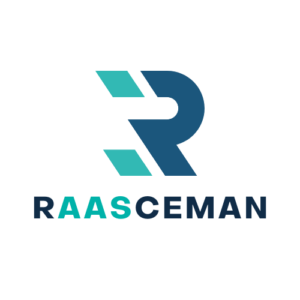
| Project name: | Resilient and Adaptive Supply Chains for Capability-based Manufacturing as a Service Networks |
| Acronym: | RAASCEMAN |
| ID code: | 101138782 |
| Call: | HORIZON-CL4-2023-TWIN-TRANSITION-01 |
| Supported by: | European Union – Horizon Europe |
| Project duration: | 09/2024 – 08/2026 (24 months) |
| Principal investigator at CIIRC: | Ing. Pavel Burget Ph.D. |
| Coordinator: | DFKI, Germany |
| Project partners: | Flanders Make, Belguim LMS, Greece CEA, France CVUT, Czech Republic HEINLAND-PFALZISCHE Technical University, Germany NETCOMPANY-INTRASOFT, Luxembourg CONTINENTAL AUTOMOTIVE, Czech Republic ASKA BIKE, Belgium |
| Budget: | Total budget: € 4 637 300.00 EU support: € 4 637 300.00 of which support for CIIRC CTU: € 517 625.00 |
Anotation
The past years have shown the vulnerability of rigid international supply chains. The ability to adapt to changes and create resilient supply chains will be a key competitive advantage for manufacturers in the future.
RAASCEMAN tackles three different possibilities to react to unforeseen events:
– adapting the production plan based on supply chain data,
– adapting the supply chain by switching the supplier using a MaaS network
– integrating remanufacturing as a procurement alternative leveraging circularity.
The project aims to enable companies to mitigate short- and medium-term unforeseen events and to enable companies to participate in a dynamic MaaS-network lowering the market barriers for companies specialized in remanufacturing or alternative technologies such as 3D printing. RAASCEMAN designs and demonstrates a series of software tools digitizing supply chains by using digital twins and an infrastructure for data-exchange based on European values.
RAASCEMAN will develop its overall ambition by the means of five scientific objectives namely:
- Actionable propositions for adapting supply chains or internal production and logistics based on reliable quantification and impact prediction of unforeseen events;
- Dynamic supply chain generation enabling resilience and self-adaptation of MaaS networks;
- Building Trust in MaaS networks auditing suppliers’ reliability and testing plausibility of offers;
- Dynamic planning and scheduling of production processes enabling companies to swiftly adapt logistics and production to varying external conditions, and
- Dynamic assembly and disassembly to enable machines in the field level.
We demonstrate our solutions in two industrial use-cases of the automotive and bike industry and create a MaaS network connecting five pilot lines distributed over Europe. The majority of project results will be made available under appropriate open-source licensing schemes to allow further maturation in integration after the RAASCEMAN project concludes.


